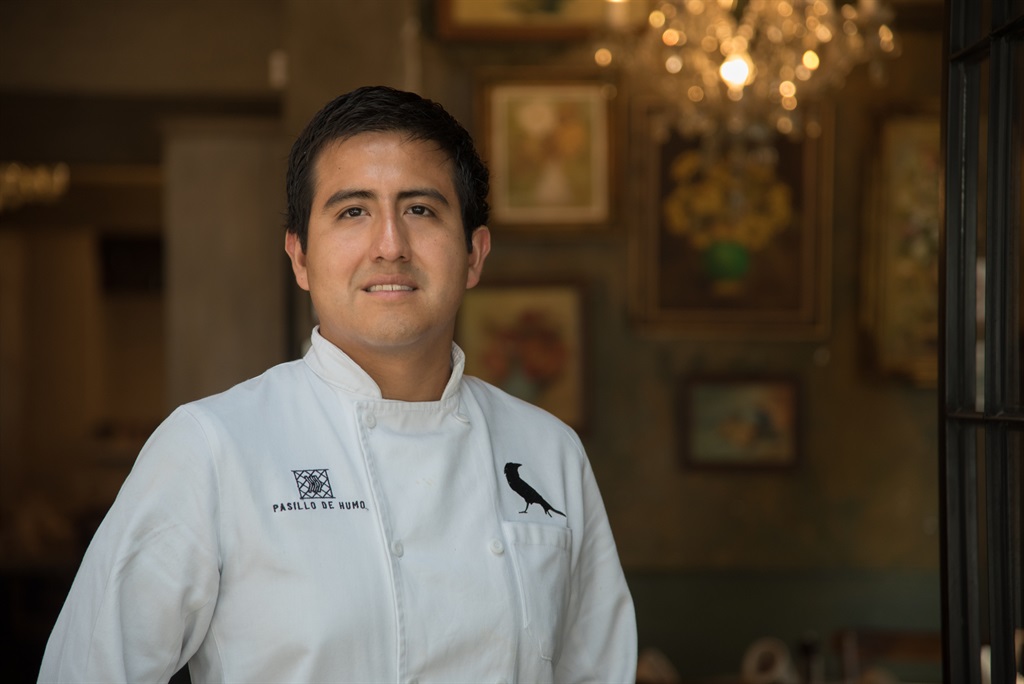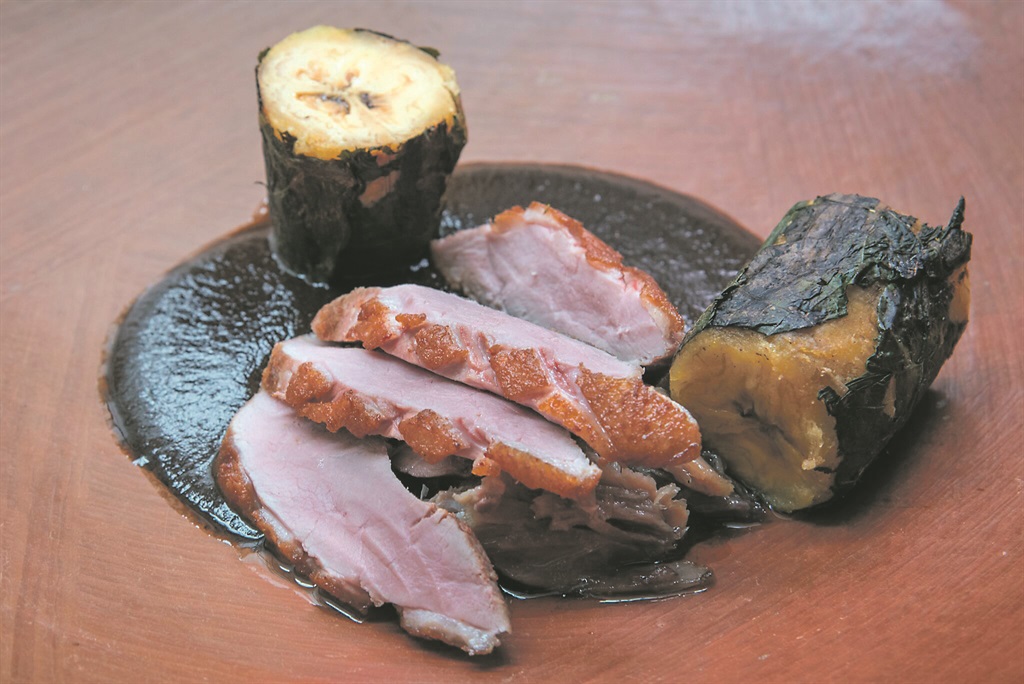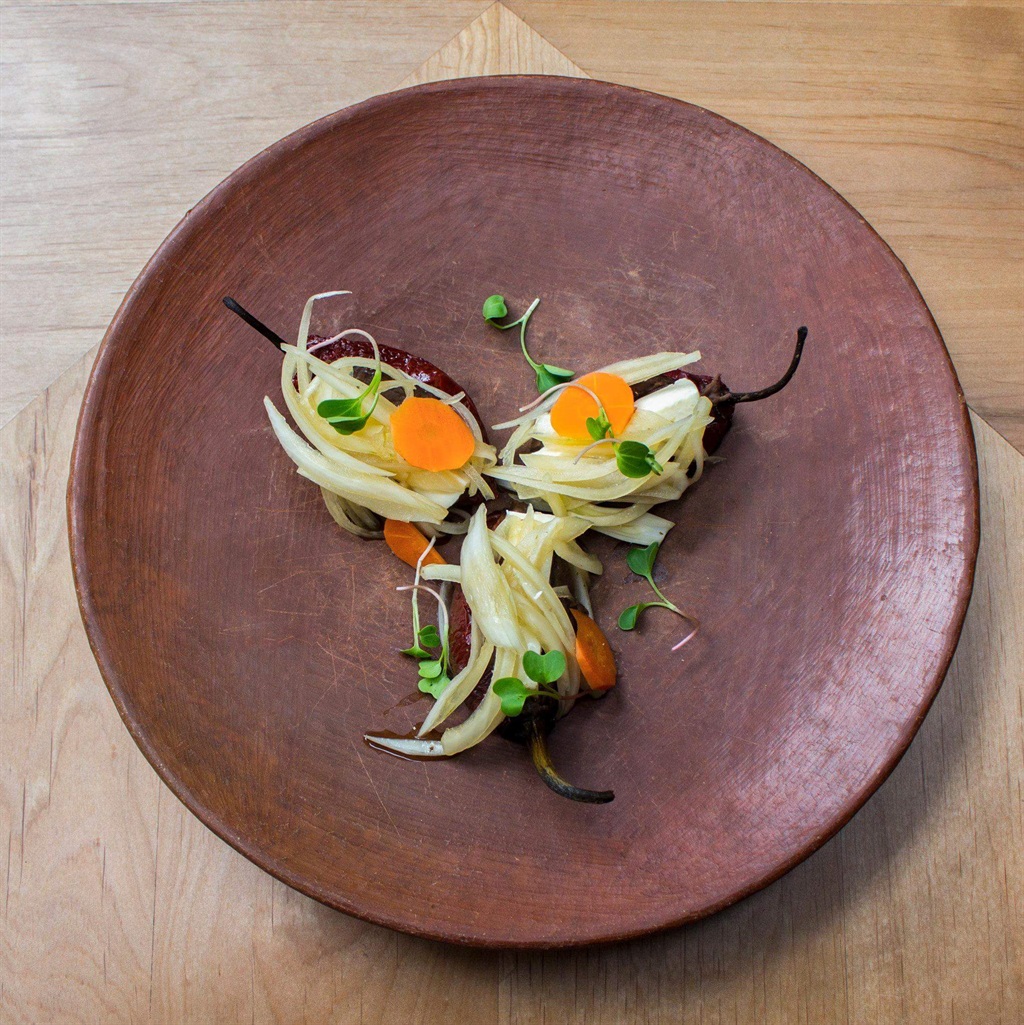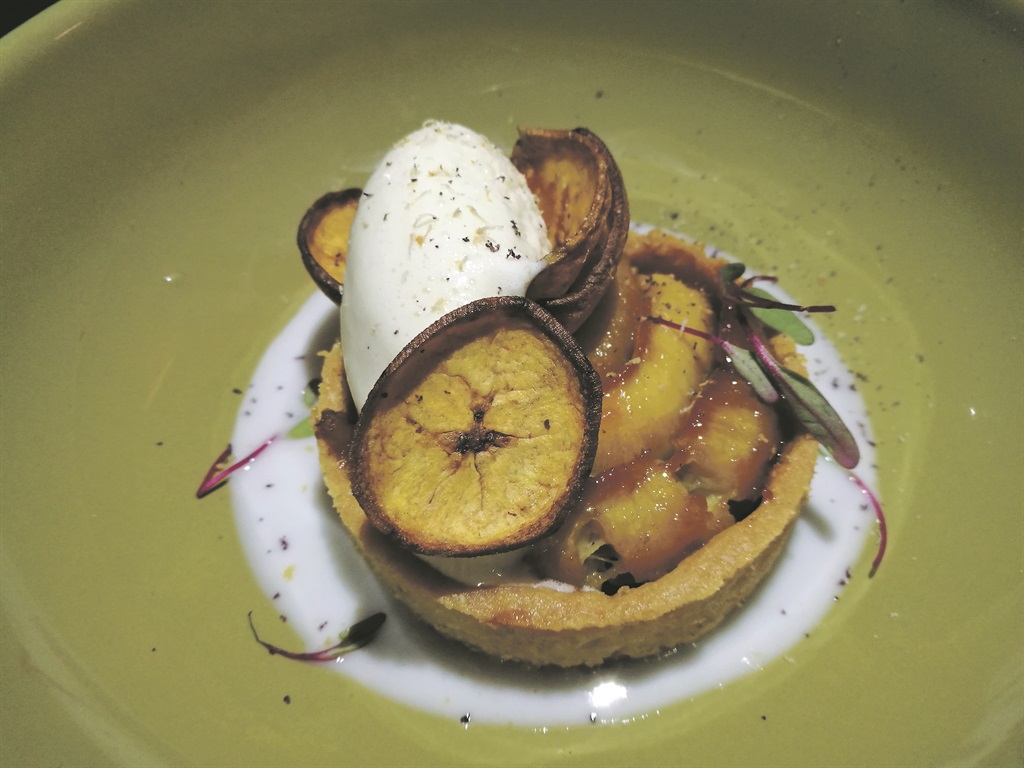
Mexican chef Alam David Méndez Florián jetted into Johannesburg last week to promote his homeland’s gastronomic glories. The 28-year-old, multiaward-winning owner of Pasillo de Humo restaurant in Mexico City treated Gauteng to demonstrations and dinners using indigenous ingredients and heritage recipes to showcase the great ancient tastes of Mesoamerica.
City Press caught up with Florián as he prepared a feast of flavours with students at the Prue Leith Chef’s Academy in Centurion. He explained his food philosophy while infusing losita de cacao flowers into cream for nicuatole (a pre-Columbian dessert) and forming plantains into molotes istemeños croquettes. As the students studied his traditional nixtamalisation methods for processing maize, he observed that “the distinct ways in which different communities farm, cook, eat and share food defines the beauty of humanity. My food is who I am. It is where I have come from. It is where I am going.”
It is in this last sentence that South Africans interested in economic development need to wake up and smell the proverbial coffee. Restaurants and fine dining chefs are often dismissed as an indulgence for the rich and spoilt, but posh plates can play a part in building a better future for all. The Mexican government has recognised this alimentary truth.
Florián was in South Africa to represent his homeland’s ven a comer (come and eat) initiative, which is part of a broader national gastronomy promotion policy. The policy is integrated into the country’s economic development strategy – so much so that, since 2015, Mexican president Enrique Peña Nieto has included gastronomy in the national productivity committee’s eight foremost strategic economic sectors.
Florián traces his epicurean ancestry to the Oaxaca region of south-western Mexico. To make his heritage-inspired dishes, he has to seek out crops from traditional, often subsistence, farming communities. In so doing, markets have been created for otherwise endangered regionally specific ingredients. This promotes biodiversity and supports indigenous agricultural/culinary knowledge.
The black chilhuacle chilies he used to make mole sauces are native to the tiny town of Culcatlan, and he says that, “20 years ago, they were almost extinct. Only five farmers still grew this chili. It is vulnerable to disease and younger farmers had given up growing it in favour of easier, more profitable crops. But its unique and wonderful taste caused chefs to begin working with the remaining farmers. When chefs buy and promote, there is a market, and then younger farmers want to learn the old ways.”
In addition to the tangible buy and sell financial gains, there have also been intangible image upgrades. Once common negative stereotypes associated with the food of indigenous peoples have been replaced with more desirable depictions. In 2010, the Mexican government successfully lobbied for its cuisine to be cited, protected and promoted within Unesco’s intangible cultural heritage of humanity listings.
The Prue Leith students obviously admired the Mexican chef’s work. And so they should – his food is delicious and skilled. And yet there was an unspoken elephant in the room. Or maybe it was a squirrel. They say the difference between a rat and squirrel is marketing. Florián’s pork head tostada tortillas were wonderful, and the meat’s taste and texture was not dissimilar to traditional Tswana-style tshotlho. When was tshotlho treated as strategically valuable to the national economic project?
The Mexican nicuatole was gloriously sweet and creamy, but not more so than the baobab and marula nut milk-based desserts made by chef Tracy Nelwamondo at Johannesburg’s Modern Traditions, whose respectful cooperative links with farming communities in Venda match those made by Florián. From the mabele and moringa shortbreads at Qunu restaurant in Johannesburg to the perfect plates of maasbanker bokkom, ice plant and dune spinach salads at Wolfgat in Paternoster, there are many South African chefs who should be incorporated into our economic initiatives at the highest level.
Mexico is not alone in recognising the role of recipes. A decade ago, the Peruvian government decided to promote regionally specific high-end heritage cuisine and restaurants that serve it. Specifically, they went out to woo judges of major restaurant awards. Lima is now a “must visit” epicurean experience destination with an eatery in the top 10 of the S Pellegrino World’s Best Restaurants list.




 Publications
Publications
 Partners
Partners











